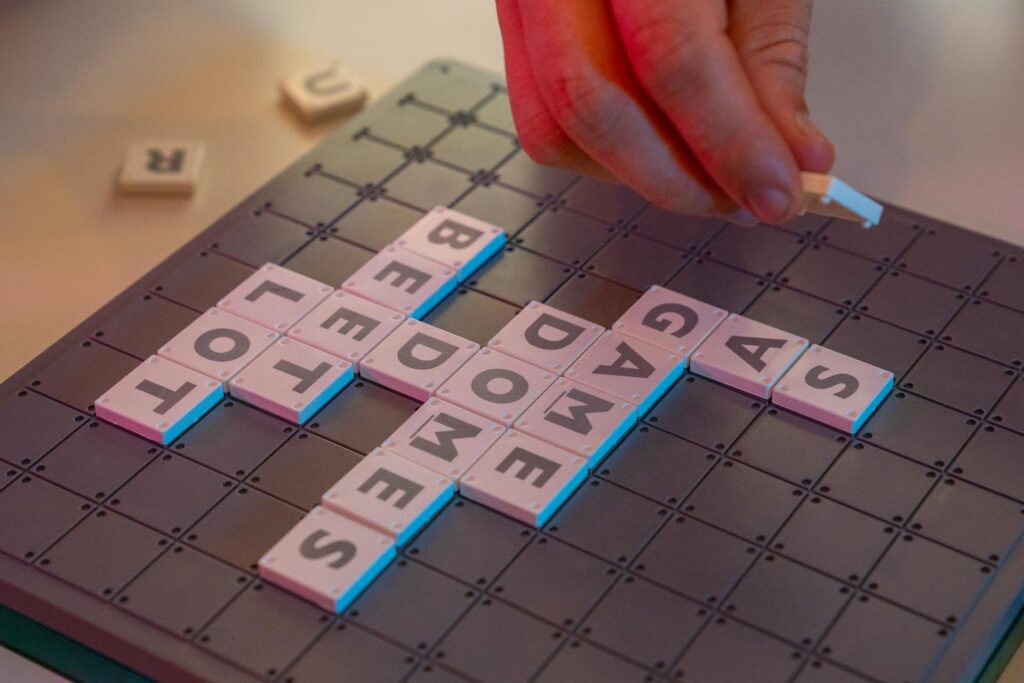Have you ever found yourself lost in swirling thoughts or getting tangled in swarming ideas that are making it difficult to focus?
Blaise Pascal said, “Clarity of mind means clarity of passion, too; this is why a great and clear mind loves ardently and sees distinctly what it loves.”
It is the clarity in our thought that helps us to calm the chaos in our mind.
According to Dictionary.com, the definition of clarity is “clearness or lucidity as to perception or understanding; freedom from indistinctness or ambiguity,” which simply means to be able to think and understand clearly and ultimately get clarity of thought.
How does clarity in thought help us in our lives?
Clarity in thought is essential in various aspects of life, such as decision making, communicating with others, solving problems, our personal growth and so on.
It has a transforming power. When our mind is buzzing with overloaded resources and we are getting distracted, clear thinking is what shows us the clear path.
Clarity helps us to thrive in our personal and professional lives.
As Robin Sharma said, “Clarity precedes success.” Clarity of mind doesn’t mean having a pure, clutter-free mind, but having the ability to cut the distractions and unnecessary noises of the outside world that don’t serve us.
In this blog, we’ll find out some common signs that someone is struggling with and look into some practical strategies to improve our clarity of thought and reach our fullest potential with confidence and purpose.
Let’s dive in.
5 Signs someone is struggling with clarity in thought
1. Asking frequent questions
People struggling with clarity of thought often ask the same questions repeatedly.
Most of the time, they are confused and facing challenges in respect to their work or decisions.

Primarily, they are in a dilemma regarding their decisions, and after deciding, they seek validation for correctness. Blurry thoughts often lead them to unnecessary decisions.
2. Being indecisive
Someone who is struggling with the lack of clarity in thoughts need to put in an effort to decide, even in a smaller decision.
They are not sure about their decisions, whether they are correct or not. So, they constantly keep changing them.
Because of that, they also find it difficult to solve problems, as their ways are mostly ineffective.
3. Poor focus
Poor focus is also a common sign of the lack of mental clarity.
Those who are facing this, struggle to maintain attention. They forget important details of some topic in between conversations.
Sometimes they face challenges to maintain concentration. Because of the lack of clarity in thought, they seem purposeless about life’s decisions.
4. Procrastination
People with a lack of clarity procrastinate their daily tasks most of the time. Because they are unsure about their daily routine.
Due to lack of clarity and consistency, they can’t prioritize the tasks effectively and keep pushing them all the time.
5. Socially uncomfortable
Those who are struggling with mental clarity often face problems in social gatherings.
Due to lack of clarity in thought, they can’t decide what to say.
They keep practicing conversations in their mind or working on their confidence continuously.
So, they try to avoid social interactions as they can’t express clearly and often mess up conversations unwillingly.
10 ways to improve clarity of thought
1. Practice Meditation
Mindfulness meditation is one of the most effective ancient ways to calm our mind. It helps us to organise our thoughts.

When we learn to still our mind, we can declutter our mind and gain clarity. A clear mind helps us to grow in our best possible way.
When our mind has clarity, we can easily think deeply about our life’s purpose, goals etc. With the help of clarity of thought, we can solve our problems more efficiently.
2. Enough sleep
When we get adequate sleep, our mind works very effectively.
Sleep enhances cognition and clarity of thought. For adults, most health experts recommend at least 7-8 hours of sleep.
By getting enough sleep, we improve our memory, concentration and overall well-being. We can think clearly when we are completely charged.
3. Try to avoid multitasking
Multi-tasking, sometime, is acceptable, as some work demands. But most of the time it leads to incomplete tasks.
Avoiding multitasking is an essential step to increase our focus and productivity. I also try to do 2 to 3 works together sometimes, but it won’t help. Not at all.

Besides, none of the tasks have been completed. Because when we multitask, our focus gets diverted and the quality of the result decreases.
When we focus on one task at a time without distractions, we perform better, the chances of errors are lower and efficiency will be improved.
So, break the tasks into manageable chunks, take time and give each task the attention it needs.
4. Learn to manage time wisely
If we manage our time in an organised way, we don’t feel stressed about our daily schedule.
Our mind won’t be occupied by the unwanted stuff. We can think properly.
By setting a deadline we can finish everything on time without any fuss.
5. Engage in brain games
Playing brain games increases our ability to focus and concentrate for longer span.
As physical workouts boost up our body strength, brain games boost up our mental strength.

Incorporate brain games like jigsaw puzzles, crosswords, scrabble, sudoku and memory games into your daily activities to increase brain power and sharpen your thinking skill.
Nowadays, there are plenty of applications available on the internet. You can easily get access to them.
6. Practice gratitude
Practicing gratitude itself is a very healthy and enriching habit. It has numerous benefits in our lives.
By practicing this, we learn to look at the setbacks in a positive way. Gratitude makes us empathetic for others as well as for ourselves.
It gives us clarity in thought, as when we practice gratitude every day, we can reflect every moment, and whether it is positive or negative, we get a clear view.
Clear thinking helps us to look at the opportunities for growth and learning. We can clear our mind by writing our thoughts on paper.
This is the easiest way to declutter our mind as we can remove all the blockages, focus only on the positive sides of life and enhance clarity in thought.
7. Journaling
Journaling is an important way for our brain to achieve clarity. Writing down our thoughts on a daily basis helps us to focus on the necessary things in our lives.

When we write, we get clarity about our emotions and beliefs as we engage our mind to go deeper.
If you feel that your brain is currently a mess, journaling can help you untangle it.
8. Keep time for solitude
Solitude helps us to think deeper. When we sit alone with ourselves without the distractions of the outer world, we think deeply about our perspective on various things.
Solitude gives us several positive outcomes. Like –
a) Enhance clarity of thought.
b) Reduce stress level
c) Improve self-confidence
We discover ourselves and our strengths and weaknesses; we often explore different possibilities. Solitude overall promotes mental well-being.
9. Exercise regularly
Exercising on a regular basis helps to reduce stress and anxiety which are the common barriers in the way of clear thinking.
By doing that, we can calm our mind which leads to more focus and helps us to think more clearly. It also helps to improve mood and cognitive performance.
We can take better decisions. Sometimes you can perform light yoga sessions, overall some physical activity daily.
10. Clear communication
People with clarity in thought can converse clearly. Because if you have mental clarity, you can express your thought very well.
The articulation will be on point as you know what to say and what not to. For that matter, you can practice active listening and then ask for clearance about your understanding.
So that you can get their point and give an answer according to that. Eventually the chances of communication will be clear.
Conclusion
As we almost reach the end of this blog, I am assuming that you have gotten a clear idea of the clarity, some signs to find out about someone who is struggling with clarity of thought and some practical step by step ways to improve the clarity of thought.
Remember that achieving clearer thinking is a continuous process and you’ll explore some other interesting ways during the journey.
Leave a comment if you find out any.
Take care,
Make the most of your day,
Until we meet again…




